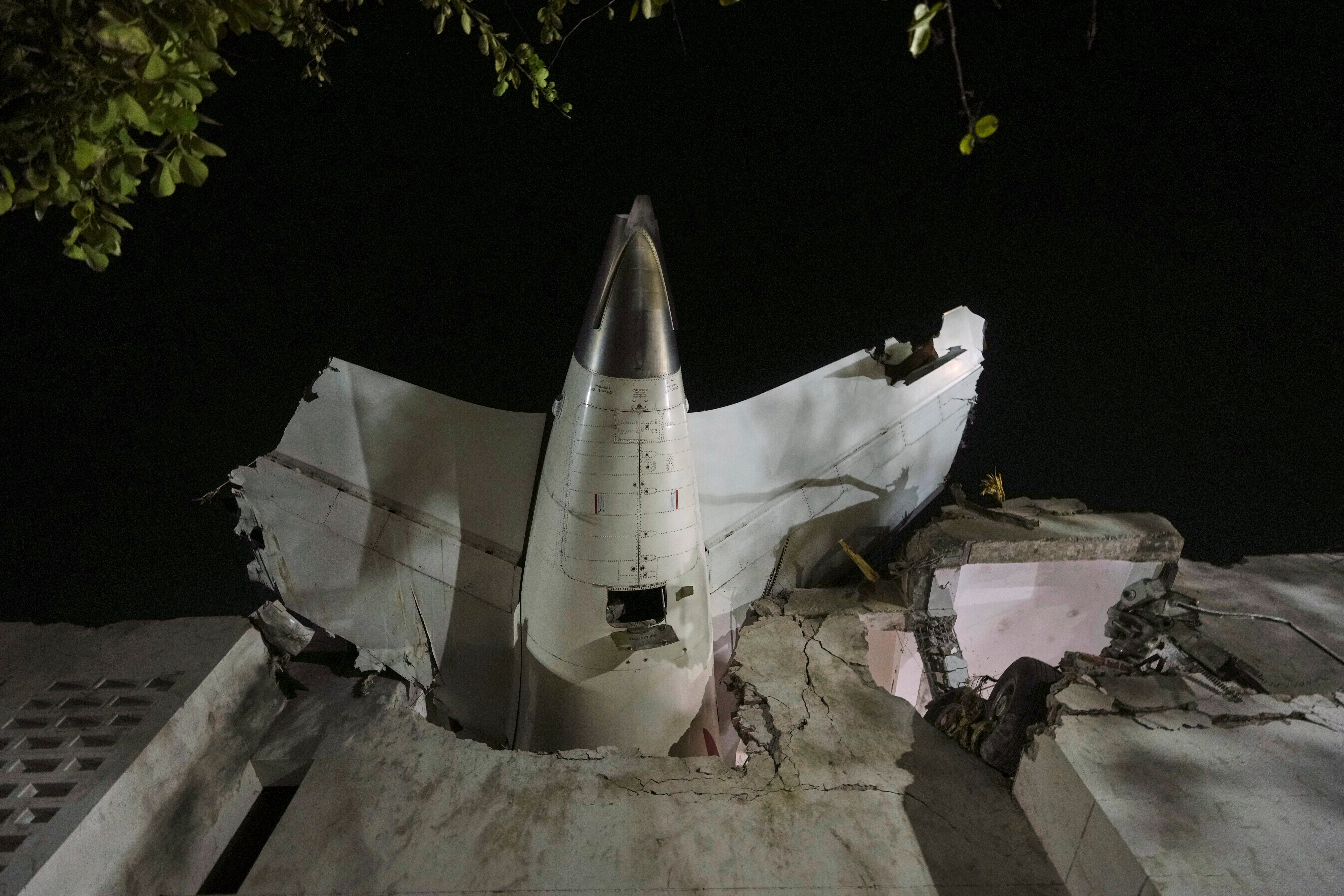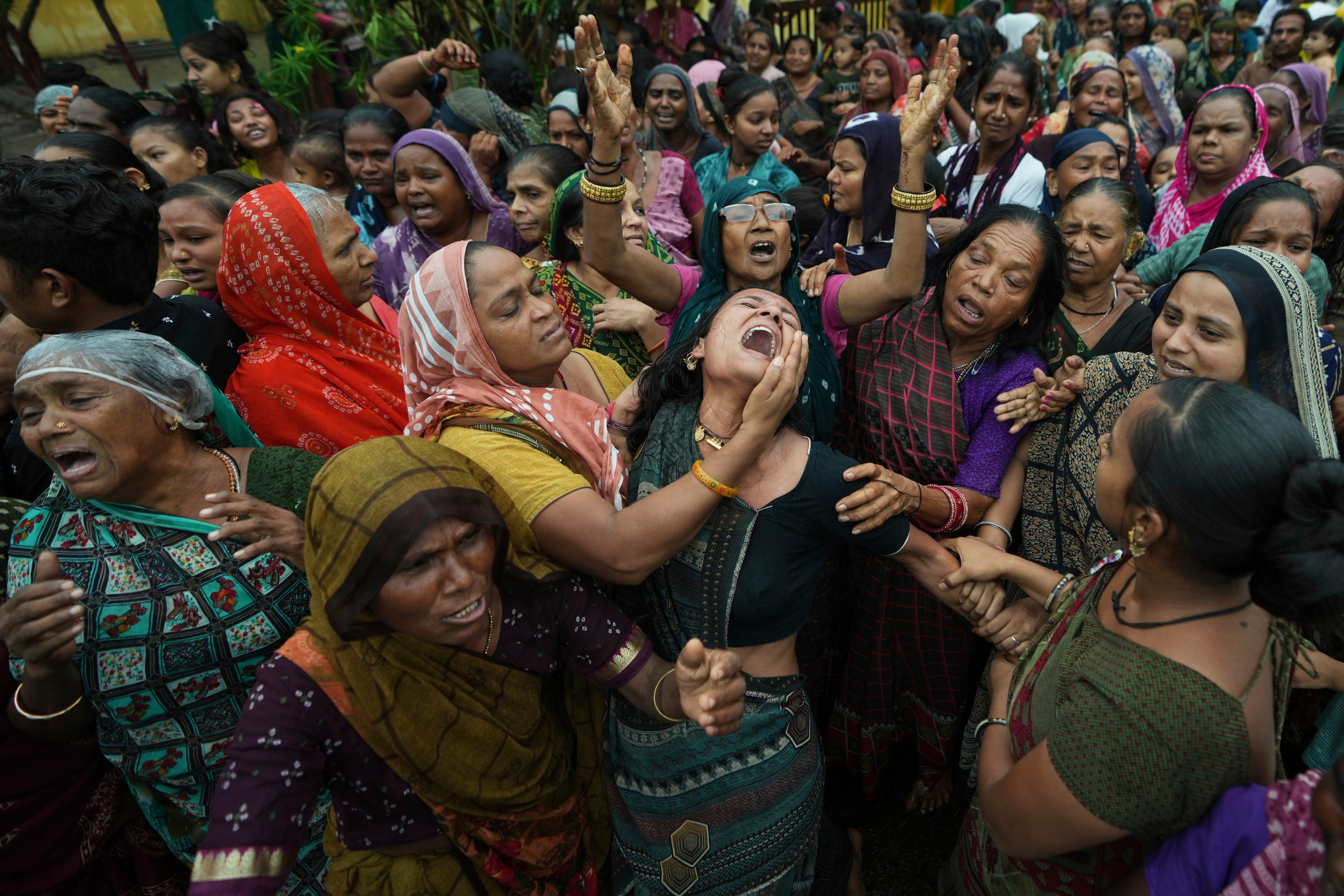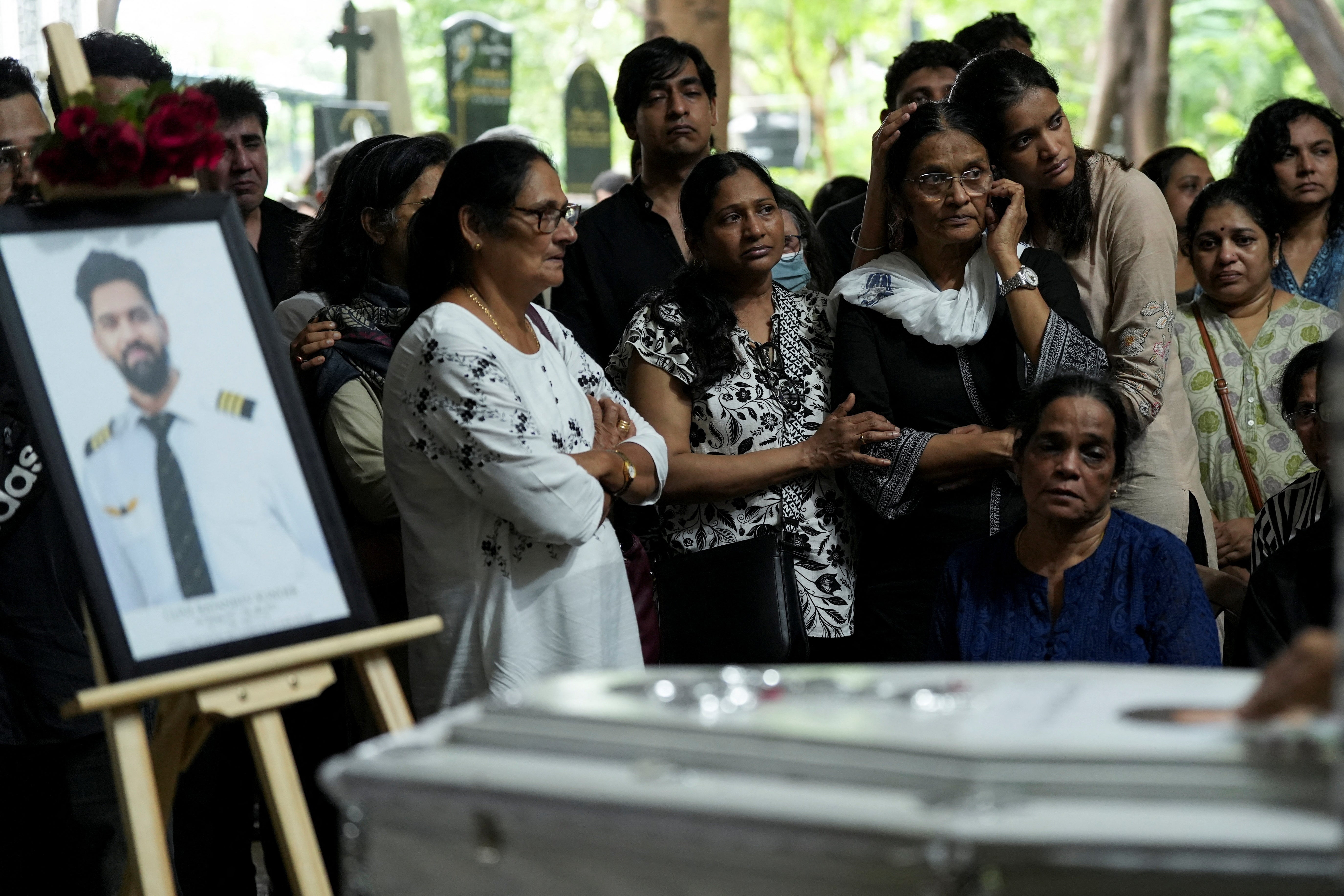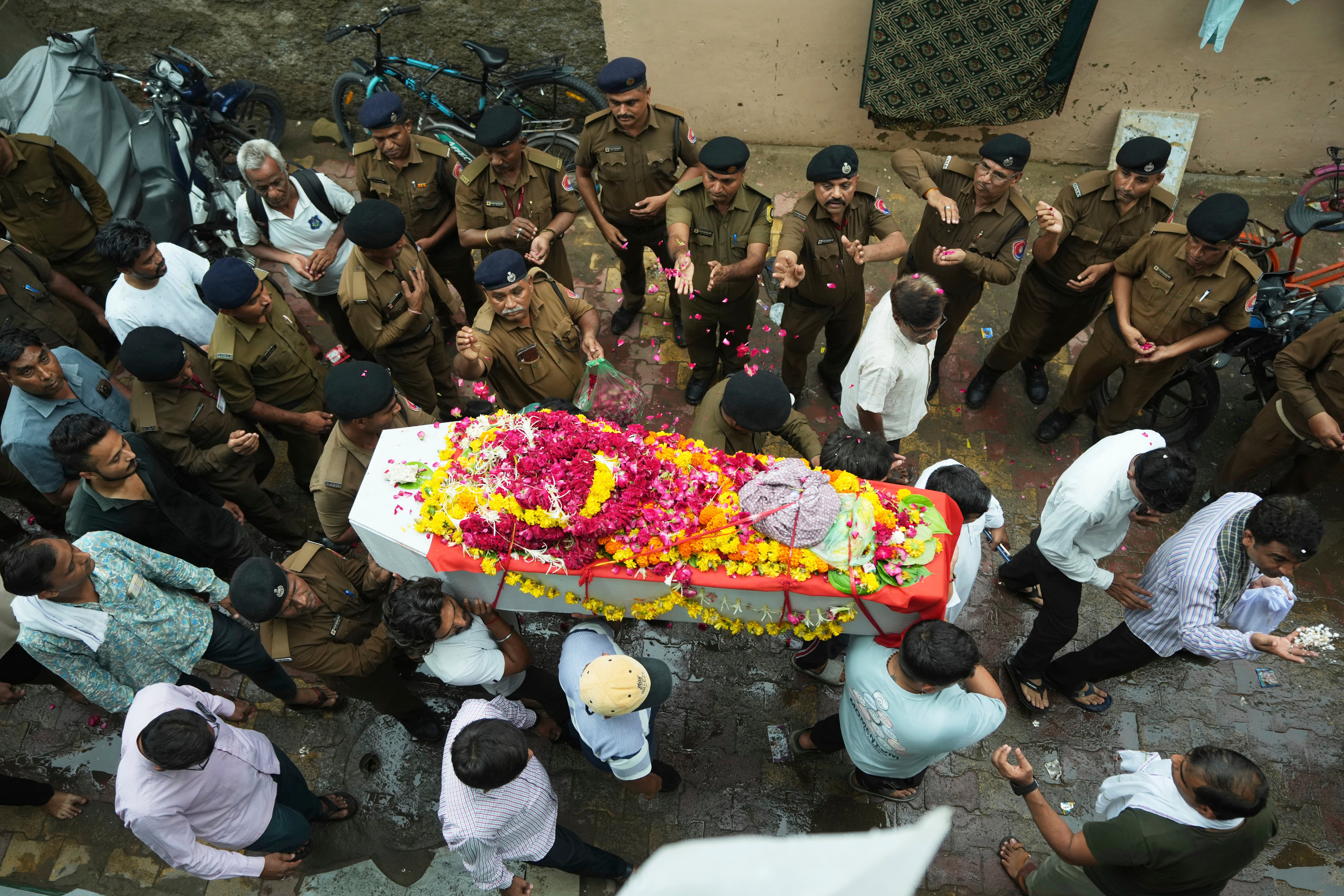A lawyer for some of the families of Air India crash victims has accused the airline of engaging in unethical and potentially unlawful conduct.
The airline, owned by Indian conglomerate Tata Group, has rejected the accusations as “unsubstantiated and inaccurate”.
The statement came after lawyer Peter Neenan, partner at British firm Stewarts, said his team was advising families of the passengers who perished in last month’s crash in western India not to fill out the compensation forms issued by the airline, citing legal risks and inappropriate handling of bereaved relatives.
Air India flight 171, a Boeing 787-8 Dreamliner, crashed shortly after take-off in Ahmedabad city on 12 June, killing 241 of the 242 passengers and crew members on board in the world’s worst aviation disaster in a decade. The crash also killed 19 people on the ground, taking the total death toll to 260.
Mr Neenan, who has previously represented victims of air disasters such as Malaysia Airlines MH17 and MH370, said in a statement to The Independent his clients were told to complete the documentation in sweltering conditions without legal assistance or even clear explanations of the terminology used.
“The repeated story we have heard from our clients is that families have been told by Air India that they have to complete a questionnaire to get the advance payment, forcing them to fill out the questionnaire in intense heat with no guidance on the terms and questions within the questionnaire,” he said.
“We are shocked and appalled that Air India is seeking this information from families when they are at their most vulnerable. They should feel ashamed.”

While Mr Neenan’s law firm claims to “have been retained by multiple families”, the number remains unclear. It further claims to be “speaking with families of over 30 passengers” who died in the crash.
Air India has reportedly made interim compensation payments to 47 families thus far, with disbursement to 55 more in progress.
It has offered each affected family Rs 2.5m (£21,500) in immediate relief in addition to Rs 10m (£86,000) announced by parent company Tata, the airline told The Independent.

Mr Neenan said his clients, based in India and the UK, were told to submit forms with details such as financial dependency using language with legal implications that most bereaved relatives weren’t equipped to interpret, particularly in a state of emotional distress.
One family member was allegedly pressured to submit documents in a cramped corridor. “The conditions where they asked us to complete the questionnaire were unacceptable, in a crowded hot corridor with unsuitable chairs and desks. There was no privacy whatsoever,” the relative told the Guardian.
Mr Neenan alleged that some families were even visited at home by airline officials to question why the forms had not been completed yet.
He warned that such tactics could reduce compensation amounts by millions of pounds, with families unaware of what they could be forfeiting.
“Either families get lawyers like me involved afterwards and then we have to argue in court that the relative filled out the form without understanding the terms, and hope the judge agrees with us,” the lawyer said. “Or, which is even worse, the airline calculates compensation using information on the form, the family don’t get legal representation and accept what I guarantee will be a significantly lower level of compensation – and that could be millions of pounds less than they are entitled to.”
Air India said in a statement it was working swiftly to provide interim compensation to the affected families while pushing back against claims of coercion and mismanagement in the aftermath of the disaster.

The airline said “considerable efforts” had been made to ensure that advance payments – intended to meet immediate financial needs – were disbursed quickly and fairly. The first payouts, it said, were processed within days of the 12 June crash.
The airline emphasised, however, that it could not operate “in an information vacuum”. In order to release funds, it was required to collect basic details to verify family relationships. This involved issuing a questionnaire asking the affected relatives to indicate whether they were financially dependent on the deceased, a move the airline described as a “fair and necessary” part of the process.
To streamline this process, Air India established a facilitation centre at the Taj Skyline hotel in Ahmedabad from 15 June where the questionnaire could be accessed. Families were also offered the option to receive the form via email, allowing them to complete it at their convenience. Airline staff stationed at the centre were available to explain the form and respond to any queries, the airline said.
“There is no requirement for family members to complete the questionnaire at the centre,” it added. “Several families have chosen to fill it out independently and submit it over email.” Copies of the completed forms were provided to families upon request.

In an apparent reference to the allegation that family members had been asked to fill out the questionnaire in cramped, hot conditions, Air India clarified that any documentation completed at hospitals or morgues was unrelated to compensation and could have been required for government purposes. The airline also denied reports of its officials making unsolicited visits to the homes of victims for compensation-related follow-up.
Air India reiterated its commitment to transparency, responsibility and compassion during the crisis. “As part of the Tata Group, we uphold core values of integrity and responsibility and remain committed to serving the community, especially during challenging times,” it said.
The airline urged the public and the media to be “cautious of misinformation and misinterpretation of facts to help everyone involved do their job responsibly”.
Meanwhile, legal teams in the UK and the US were preparing to launch lawsuits against both Boeing and Air India, NDTV reported.
James Healy-Pratt and Owen Hanna of Keystone Law in the UK along with the Wisner Law Firm in the US were investigating the crash and speaking with families of victims, the Economic Times reported. Mr Healy-Pratt told the Indian media outlet their international legal team was reviewing all evidence and considering litigation against Boeing in the US and Air India in the UK High Court.
Indian lawmakers to review aviation safety weeks after decade’s worst plane crash
Pilots grounded after Air India flight struggles during takeoff after AI171 crash
What experts say after miracle of seat 11A on Air India crash
Inside the Dalai Lama’s succession and what it means for the Tibetan struggle
Who will be the next Dalai Lama and how will they be chosen?
Dalai Lama gives long-awaited update on his reincarnation ahead of 90th birthday







